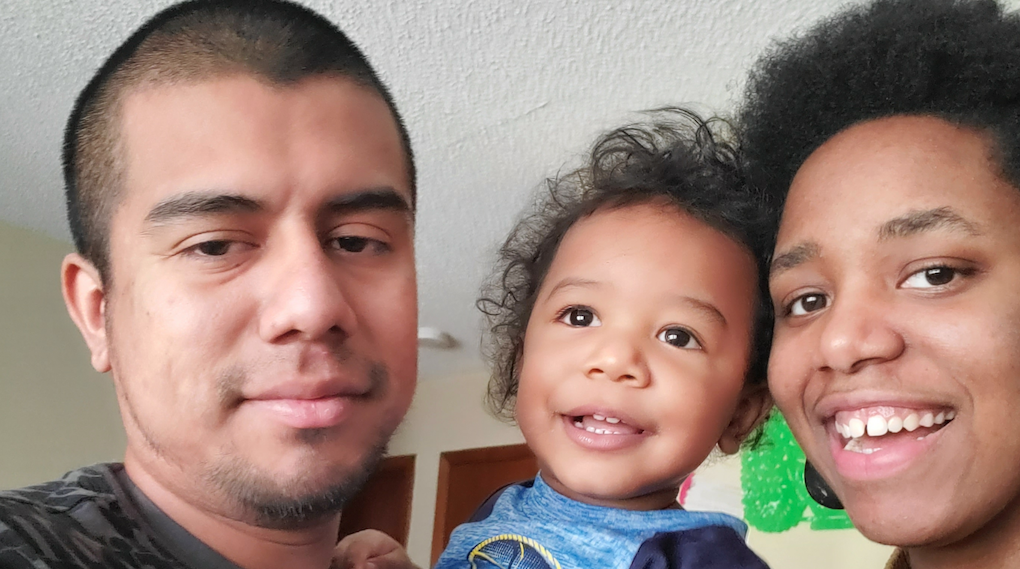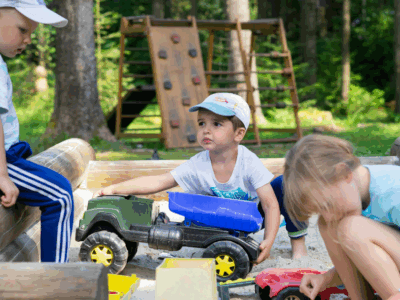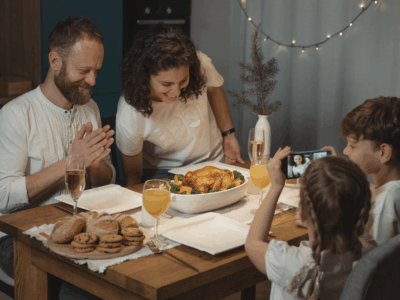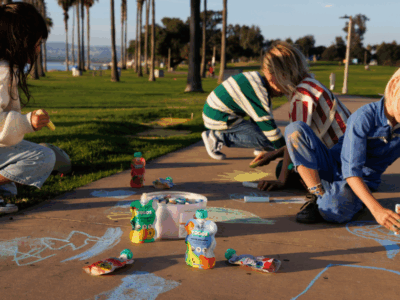Lake Street, Minneapolis is full of Latino and Somali businesses. Many have put up Black Lives Matter and Justice for George Floyd signs on their boarded-up windows.
I see their support, but I’m scared to leave my home. I want to go to a peaceful protest and march. I want to do something, but I get anxiety seeing the footage of rubber bullets and batons. Then I see photos of police officers smiling with Black people. It’s a contradiction. I want to trust those who are here to protect and serve.
And yet I can’t know for sure who truly is supporting the Black Lives Matter movement.
Are the black squares on my Instagram feed with #blackouttuesday or #amplifymelanatedvoices hashtags and the vows to support Black-owned businesses enough? The real work to dismantle systemic racism from its deep roots has to come from within. It starts in the home, where we are literally raising the next generation.
My Mixed Family and Our Mixed Views on Racism
When I was pregnant, I tried to think of how I would talk about race with my unborn son Chris.
My mother would warn me of stories about Black men being arrested for DWB (driving while Black). It made me fearful. I knew that I didn’t want that for my son. I wanted to raise him to be aware, but not afraid.
But simply by being himself, my baby’s future would be at risk. Chris is biracial. My husband Javier is from Mexico. We love our son dearly and know it’s crucial to teach him about the unfair ways others might view and treat him because of his skin, but we never settled on an action plan for discussing his mixed heritage to him. We refer to Chris as Afrolatino or Afro-Mexicano. But that’s as far as our discussions have ever gone.
But then, Breonna Taylor. But then, George Floyd. But then, too many others.
Last week Javier approached me as I was in tears and asked, “Why are you crying?”
He believed that what happened in Minneapolis shouldn’t have affected me the way it did.
In that moment, I realized how crucial it was to have conversations on race, even with the people who love and understand you the most.
I had marched for him in St. Paul to support a bill that would allow undocumented people to get a driver’s license before. I was upset that he hadn’t returned the enthusiasm and support. That he wasn’t outraged. I know I couldn’t let this go as something normal and I needed him to understand why I was feeling this way.
Starting the Conversation with My Mexican Husband, My Ally
Yes, our son is Mexican. But he’s also Black, and I want him to know that he should never have to feel like he has to choose between his heritages. He should be able to fight for the rights of both Black and Latinx communities.
Racism and prejudice are never pleasant topics for conversation with children. As a Black mother, I know that I have to warn my child of a system that has been built to silence Black voices.
One night, after hours of debating with my husband, he threw his arms up and declared, “What’s the point in fighting racism? The world is a mess!”
I retorted, “Is that how you want our son to see the world?”
We continued to share our views on how racism would fit into the things that we’d have to talk about with Chris someday.
I told him that maybe the conversation with Chris can wait, but we have to start our conversation. He has to understand that racism affects my mental health. Being willfully ignorant is not the solution.
I explained to him that questions like, “Why are you yelling?” or “What does George Floyd’s death have to do with you?” undermines the effect that racism has on everyone.
He promised to educate him on the history of Black America. And I promised to call him out anytime his comments and questions become insensitive. I can’t control his willingness to learn, unfortunately. But I can continue to make my voice heard in his language at home.
Responding to “But I’m Colorblind” and “All Lives Matter!”
I have to relearn words all over again. Neocolonialism, systemic racism, colorism. And then, I have to learn these words in another language to have conversations with my husband because he mostly speaks Spanish.
Now when he sees me crying, he doesn’t ask me why anymore.
I want him to understand just as much as I want our son to understand. And I’ve been met with opposition from my own family.
Why are you worried about that right now? We’re still dealing with a pandemic.
If I speak up, I’m aggressive. If I don’t speak up, I’m not a strong Black woman.
In an ideal world, we can give enough attention to all the issues that are plaguing society. But I can’t look at the video that has been surfacing online and say, “All Lives Matter.” Black people walk around with targets on our backs. We have been the targets of White Supremacy that has been justified by religious views, political powers, and more.
Moving Forward: Patience and Peace
I love my husband with all my heart. And I love my son because he is a part of both of us. And I watch our son Chris grow every day with hope and optimism.
Although some of our conversations end in bitter silence and disagreement, it’s the road we have to walk down to understand each other. I won’t stop trying to engage my family in these uncomfortable conversations. It’s how we grow as individuals.
I know that I have to continue to educate both my son and my husband. It’s the work that I’m willing to put in. At the same time, it’s hard work. Most importantly, I cannot accept leaving racism out of the conversation. If we’re looking to create a better tomorrow, we must start those conversations today.



